- Free shipping to mainland Spain for orders over 300€.
"Inverter Victron Phoenix 12/1200 VE Direct Schuko - PIN1221212121200" has been added to your basket. View basket
Lithium battery 4.8kWh Pylontech US5000 48V
1.084,16€
TAXES INC.
Lithium module LiFePO₄ 48 V in format 19″ rack, 4.56 useful kWh per unit, BMS with CAN/RS485 and real compatibility with leading ecosystems. Parallel scalable. Ideal for homes connected to 48V inverters demanding reliability and advanced monitoring.
- Rated operating voltage (V): 48 V
- Useful capacity: 4560 Wh
- Communications interfaces: RS485, CAN
- Certifications: VDE2510-50/IEC62619/UL1973/UL9540A/CE/UN38.3
- Estimated useful lifeover 15 years (25 °C)
- Life cycles: more than 6000 with downloads to 90% DoD
Better alternative; Lithium battery 48V LiFePO4 Pytes E-Box 48100R 5.12kWh
Product available for sale

Finance your purchase with Cetelem
Reference:
US5000
Categories: 48V Lithium Batteries, Solar batteries
Details of the Lithium battery 4.8kWh Pylontech US5000 48V
Pylontech US5000 - LiFePO₄ 48 V Battery - 4.8 kWh (4.56 kWh usable)
The US5000 is the 48V lithium battery that has given me the best results in domestic and small commercial installations. I have been using it since 2018 and, as of today, I have in the order of 300 pcs. in the field working without major incidents. What I like is its combination of clear useful capacity (4.56 kWh), BMS very well integrated with Victron and an almost zero learning curve for those who already work with 48 V and want to install lithium batteries.
In actual use, the battery is predictableIt delivers what it promises and communicates with the inverter so that the entire system respects load/discharge and temperature limits. If you are looking for a proven option, with plenty of documentation and accessible spare parts, you won't get lost here.
Performance and actual use
In tab you will see 80 A as the recommended current. In my experience, the US5000 supports these 80 A continuous when the cell temperature is in range and the DC wiring is well dimensioned (I recommend 1 cable kit per battery). The important thing is to let the BMS communicates by CAN with the Cerbo GX: if the battery wants to reduce charging or discharging current due to cold or protection, the inverter will automatically limit itself to extend the life of the battery.
I have installed banks of 2 to 6 modules running daily with serious peaks. The current delivery is stable and the SOC reported by the battery itself to the Victron ecosystem is very reliable. In scenarios with air-conditioning or occasional pumping, if the DC bus and the protections are well dimensioned, the system does not fall short.
Integration with Victron - plug in, communicate and run
With the inverter Victron MultiPlus II 48/5000 integration is very good. I connect the CANI select the CAN communications profile at 500Kbs to communicate with the battery and let the inverter receive voltage and current limits directly from the BMS. When I enter the Cerbo GXI can see voltage of each cellBMS events useful for maintenance or troubleshooting.
My starting order that avoids scares: master battery → slave → inverter. The SOC must come from the battery, not from the inverter's internal algorithm. This keeps the system no misalignment after enlargements or cuts.
Cell design: well implemented pouch cells
The US5000 uses cells pouch type. I am clear: it is a format more mechanically sensitive that the prismatic if mistreated, but has not given me any problems mounted on 19″ rack with brackets and tighten them to the pair (but use separator trays, do not place the batteries directly on top of each other). There are prismatic alternatives on the market (e.g. 51.2 V Pytes 48100 type modules) with good €/kWh; even so, the US5000 is still a good choice. the most demanded among my clients for compatibility, stock and support.
Technical note that I often come across: US5000 works with 15 cells in series. In front of benches 16S of other brands, in residential integration I have not seen any practical disadvantages if the BMS controls the whole system.
Dimensioning and scalability
Each module provides 4.56 useful kWh. Quick rules I use when counselling:
-
1 moduleWeekend support, very low consumption tables. Try not to discharge more than 3kW of power.
-
2 modulesEfficient housing with MultiPlus II 48/5000, standard appliances.
-
3-4 modules: usual dwelling with peaks in air conditioning and teleworking.
-
5-6 modules: large dwelling, pumping, several airs or workshop.
Deja 20-30 % margin on your daily target consumption. If you later expand, reconfigure teacher/slaves and reviews the DC bus wiring section y fuses for each branch to adjust to the new total system current.
Installation and security that works for me
-
Assembly at 19″ rack with separator trays. You avoid stress on connectors.
-
DC wiring short, generous sections and fuse holder MEGA/NH per branch.
-
Communication by CAN with correct pinout for Victron; Cable type A.
-
BMS controlling everythingThe following are the dynamic limits of the battery: absorption voltage, buoyancy and dynamic limits coming from the battery.
-
ChecksAfter the first start-up, I check cell balance and correct temperatures.
-
EnlargementsI add the new module, I add the new module, I I synchronise and put it as teacher when appropriate.
When I have had units with cell-to-cell voltage imbalances or persistent alerts, the service after-sales service has replied no snags within the limitations of the warranty.
Compatibility and recommended accessories
-
48 V inverters with LFP support by CAN/RS485: perfect with Victron (MultiPlus II 48/5000).
-
Monitoring: Cerbo GX for cell, SOC and event registration.
-
Accessories: CAN cable US5000↔investor, 19″ rack, brackets, fuses y DC isolator.
If you use another brand of inverter, check CAN/RS485 compatibility and battery profiles. The US5000 is very tolerant at the level of communication.
Technical specifications
| Parameter | Value |
|---|---|
| Chemistry | LiFePO₄ |
| Rated voltage | 48 V |
| Rated capacity | 4.8 kWh |
| Capacity useful | 4,56 kWh |
| Recommended current | 80 A |
| Max. continuous current | 100 A (depending on cell temperature) |
| Communication | CAN, RS485 |
| Protection | Integrated BMS |
| IP Grade | IP20 |
| Weight | ≈ 39,7 kg |
| Dimensions | 442 × 420 × 161 mm |
| Life Cycles | > 6,000 (25 °C, DOD 90 %) |
| Format | Module 19″ rack |
| Series of cells | 15S |
What is included
-
1× Battery Pylontech US5000.
-
Cables for inter-module communication.
-
Safety manual and guidelines.
Not includedDC cables made to measure, 19″ rack, brackets, fuses y DC isolator.
Warranty and support
Guarantee manufacturer's official. In my experience, when it has been my turn to replace some units, the processing has been nimble within the deadline. If you need help with implementation o enlargementsI can guide you with parameters and boot order so that the system will be configured from the first day.
Frequently asked questions
How much useful energy does each module have?
4,56 kWh. It usually covers full nights in efficient dwellings with two modules.
80 A or 100 A?
I work with 80 A as a reference and 100 A as a roof continuous when the battery permits. The BMS cut back if necessary.
Can I expand later?
Yes, you add modules in parallel, synchronise and check protections. I often do this without redoing the installation.
Does it work with Victron?
Yes, very good. With CAN the inverter obeys the BMS. With Cerbo GX see cell voltages and real-time alarms.
Pouch vs. prismatic?
The US5000 is pouch. Properly rack mounted, it has not given me any problems. If you prioritise €/kWh and you want to prismaticPlease consult me for compatible alternatives.
Pylontech US5000 48V 4.8kWh Lithium Battery Warranty
All Pylontech lithium batteries are guaranteed for 7 years by the manufacturer and up to 10 years if the product is registered in the Pylontech website.
A number of requirements must be met in order not to exceed the usage parameters set by the manufacturer for the battery. Excessive charging current or power output may cause the US5000 to fail and will not be covered under warranty.
4.8kWh Pylontech US5000 48V lithium battery manual and datasheet
For more information on the Pylontech Us5000 see the manual and data sheet:
View Pylontech US5000 48V 4.8kWh lithium battery datasheet
View Pylontech US5000 48V 4.8kWh lithium battery manual
Weight and dimensions
| Weight | 40 kg |
|---|---|
| Dimensions | 44,2 × 42 × 16,2 cm |
User feedback
Be the first to review "Lithium battery 4.8kWh Pylontech US5000 48V" Cancel reply
You must be logged in to post a review.

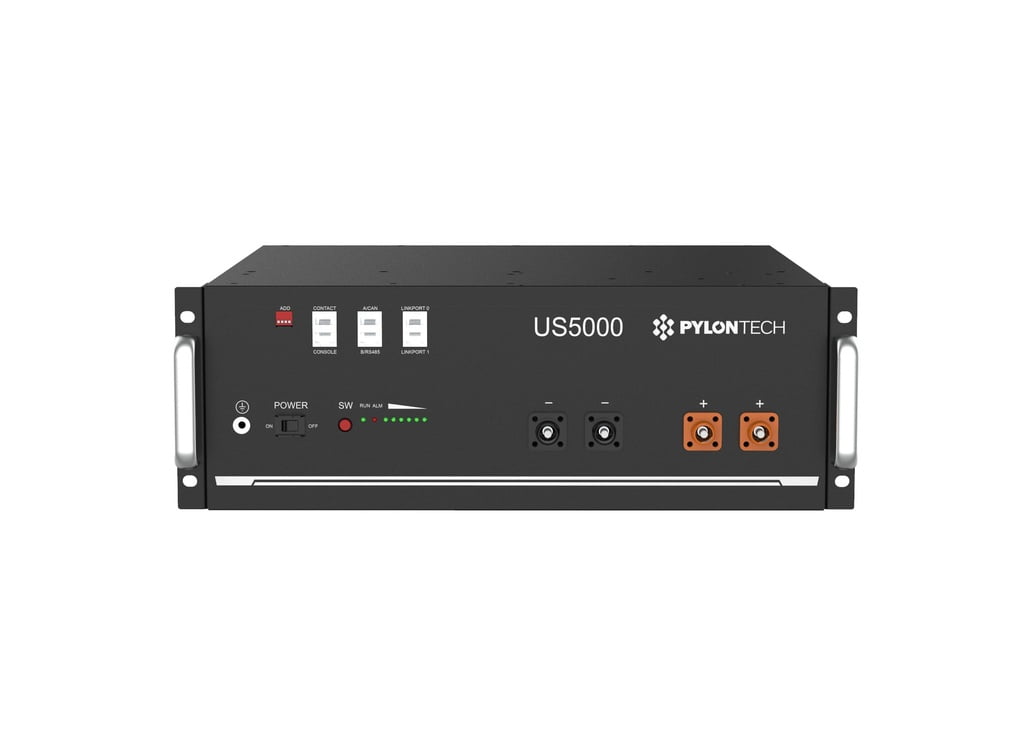
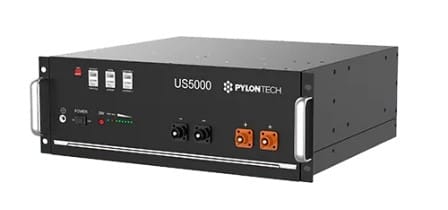

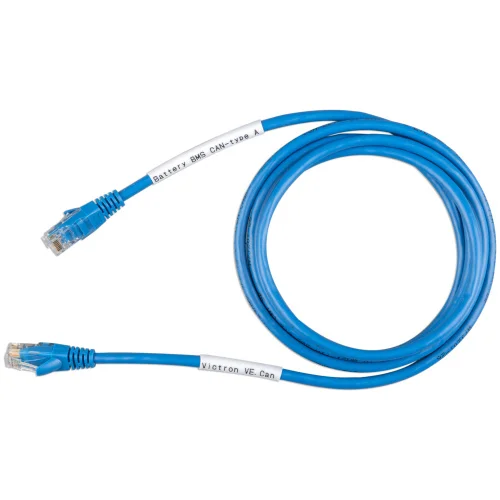
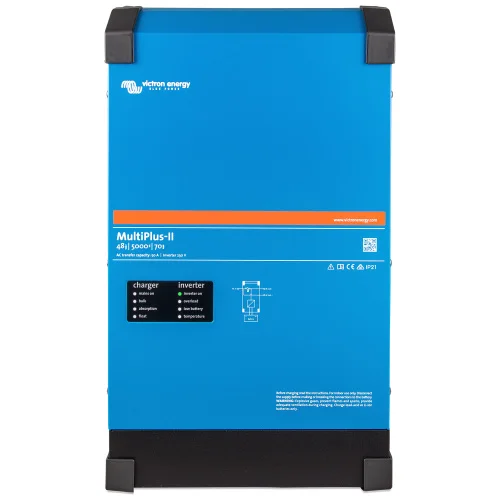
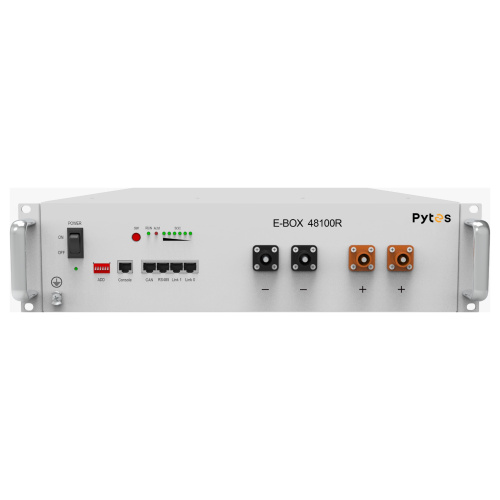
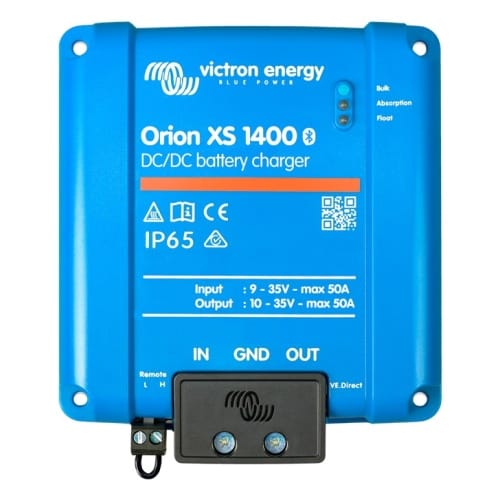
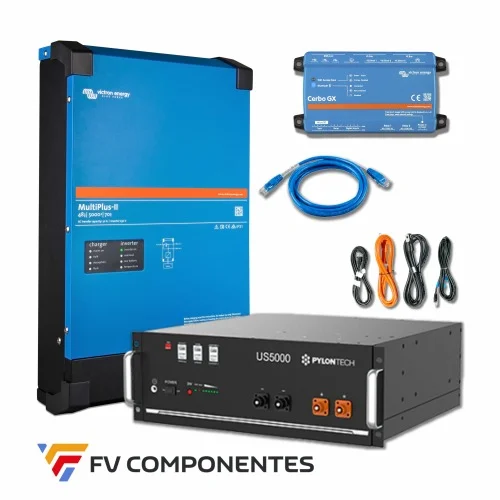
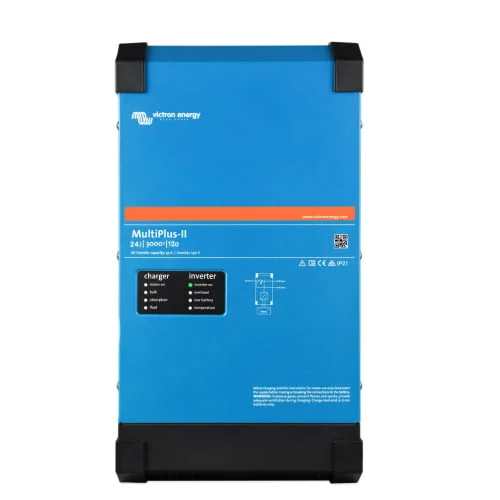
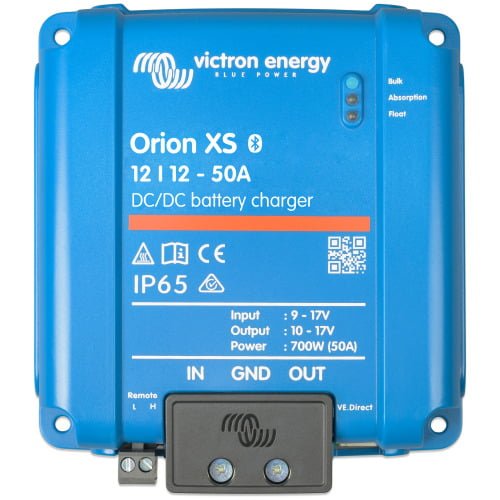
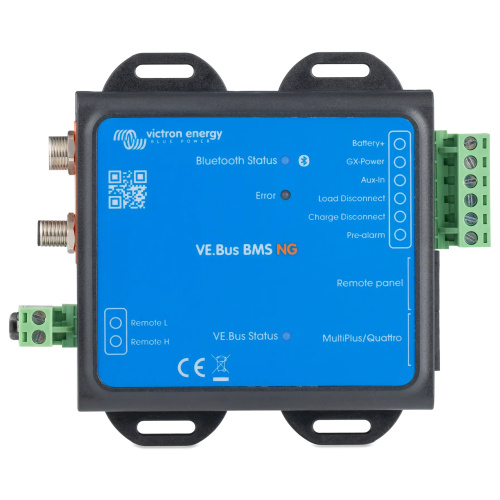
Reviews
There are no reviews yet.